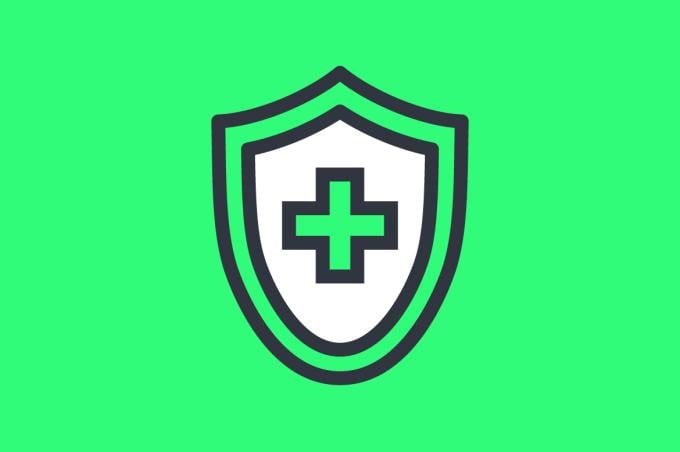It is estimated that more than 3 billion people worldwide are affected by neurological conditions, making them the leading cause of illness and disability globally.
“Neurological conditions cause great suffering to the individuals and families they affect, and rob communities and economies of human capital,” said Tedros Adhanom Ghebreyesus, PhD, Director-General of the World Health Organization, in a 2021 news release from the UN agency. “It is more important than ever to ensure brain health is better understood, valued and protected, from early childhood to later life.”
Here are some important health tips that neurologists want their patients to know. They are drawn from the AMA’s What Doctors Wish Patients Knew™ series, which provides physicians with a platform to share what they want patients to understand about today’s health care headlines.
Knowing ALS' progression and management maximizes quality of life
- Lou Gehrig—the New York Yankees’ first baseman known as the “Iron Horse”—was one of the greatest players in baseball history. But his career was tragically cut short when he was diagnosed with amyotrophic lateral sclerosis (ALS), a progressive neurodegenerative disease that slowly robs people of their ability to move, speak and eventually breathe.
- There are now more than 31,000 patients with ALS in the United States, with about 5,000 new diagnoses of the disease each year. Most people who develop ALS are between 55 and 75 years old, but the disease also can afflict people in their 20s and 30s, or even younger.
- Amir H. Sabouri, MD, PhD, was one of two AMA members who outlined what patients need to know about this rare but terminal neurodegenerative disorder. Dr. Sabouri is a neurologist and a neuromuscular subspecialist and medical director of The Permanente Medical Group Multidisciplinary ALS Clinic in Martinez, California. The Permanente Medical Group is a member of the AMA Health System Program, which provides enterprise solutions to equip leadership, physicians and care teams with resources to help drive the future of medicine.
Not all migraines are created equal
- Headaches in general can be disruptive to a person’s day. But for people with migraines, the discomfort can be so extreme that it blows regular headaches out of the water. While many people may use “migraine” and “headache” interchangeably, not all head pain is classified as a migraine.
- This neurological condition can cause debilitating pain that can leave a person in bed for days, yet some people with migraines may not feel any pain at all. They may experience visual disturbances or other symptoms such as nausea, numbness and tingling, irritability and difficulty speaking, among others. This can lead to confusion over whether it is a migraine or something more serious. A neurologist and pain management specialist discussed what patients need to know about migraines.
Most vertigo has ear causes
- Navigating the complexities of inner ear disorders, one symptom stands out for its disruptive impact: vertigo. This sensation of spinning or dizziness can strike without warning, leaving patients disoriented and vulnerable. And it’s not something patients should “just deal with” or must live with. There is relief.
- Deema Fattal, MD, a neurologist and clinical professor of neurology and otolaryngology at the University of Iowa Healthcare, specializes in balance disorders including vertigo. The University of Iowa Health Care also is a member of the AMA Health System Program.
Snoring is not always sleep apnea
- Snoring is a big concern for many patients because it can cause disruptions in sleep patterns and cause tension in relationships and affect your bed partner’s ability to function the next day. Understanding the causes and consequences and knowing when it’s more than just snoring can make all the difference.
- Virginia Skiba, MD, a neurologist and sleep medicine physician at Henry Ford Medical Center in Sterling Heights, Michigan, shared what doctors wish patients knew about snoring. Henry Ford Health also is a member of the AMA Health System Program.
Approach caffeine with caution
- Many people can’t imagine starting their day without a cup of coffee or tea. Caffeine has become the silent hero fueling our daily lives, helping people get through that afternoon slump. It can also have positive effects on alertness, cognitive function and athletic function. But as we indulge in our favorite caffeinated beverages, there are also some concerns about excessive consumption and potential health risks.
- Two neurologists and a cardiologist weigh in on the pros and cons of caffeine consumption, as well as how to safely and effectively consume it. At the top of their list: Keep an eye on how much you consume—starting with small, frequent doses instead of a standard American mug of coffee.
While reading the articles outlined above is a great way for patients to absorb new insights, neurologists have a new, stress-free way to earn CME credits online.
JN Learning™, the CME arm of the JAMA Network™, enables users to browse the JAMA Network catalogue of over 5,000 online resources by any medical topic. A filter then lets users locate more than 1,700 relevant online CME opportunities.
CME from the JAMA Network also enables you to earn AMA PRA Category 1 Credit™ from a source you trust. The AMA has added lessons for many of the most common specialty health topics.
The neurology category helps learners correctly diagnose and treat unusual presentations of epilepsy and seizures, cerebrovascular disease, neurodegenerative disease, central nervous system infections, vasculitis and more. Its 10-lesson online series covers these topics.




